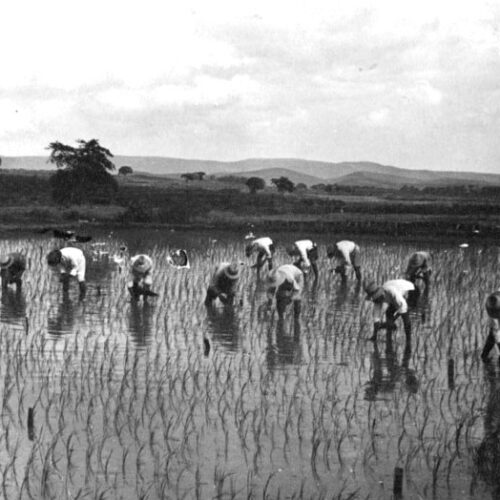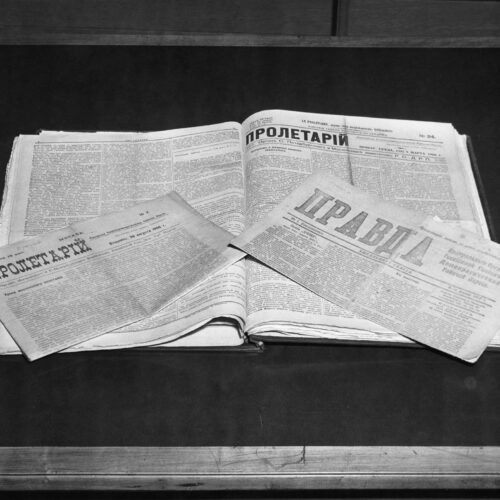For our first 2021 edition of the New Research series, we present four recently published RAC Research Reports. They span a wide range of subject areas and time periods. The reports draw on diverse archival material from the records of the Rockefeller Foundation, the Ford Foundation, and the Population Council.
“Saiki Tadasu and the Making of the Global Science of Nutrition, 1900-1927” by Jing Sun
Jing Sun is a Ph.D. candidate at the University of Pennsylvania specializing in the history of modern Japan, Far East history, and aspects of world history. Her research report, “Saiki Tadasu and the Making of the Global Science of Nutrition, 1900-1927” looks at the career of a Japanese nutrition scientist during the interwar period and his connections within the global intellectual networks being fostered by the League of Nations. She argues that during this period Japan emerged as an important actor in the circulation of knowledge on food and nutrition.
Jing Sun maintains that the activities of Saiki represented part of a shift from exclusively transatlantic dialogues between North America and Europe to a geographically much larger one. The Rockefeller Foundation was an important catalyst for these changes, and her use of its archival records highlights this story.
“The Ford Foundation in Greece, 1958-1982” by Christos Mais
In “The Ford Foundation in Greece, 1958-1982,” Christos Mais discusses his research on the activities of the Ford Foundation (FF) in that country, both during civilian rule and, later, in the period of military dictatorship. During the first period, he notes that the FF supported a variety of state institutions. However, after the military coup, the Ford Foundation shifted much of its focus to non-state organizations and individual grantees. He maintains that until now much of the historical discourse concerning the Foundation’s role in the country has been caught up in polemical arguments about politics. Mais, a doctoral student at the Leiden University, anticipates that his dissertation will fill an important gap in the historiography. Having looked at Ford Foundation grant records, catalogued reports, and oral histories, he emphasizes that an analysis of the interactions of the Ford Foundation’s representative in Athens with grantees, as well as with FF officers in New York, offer significant insight into Ford’s actions and objectives.
“Polish Experts and American Internationalists in the Field of Social Science” by Olga Linkiewicz
Olga Linkiewicz is a historian from the Polish Academy of Sciences with expertise in the development of the social sciences, ethnography, and cultural anthropology in the Eastern European context. She visited the RAC on a number of occasions and received a research stipend from us in 2019 to enable her to explore our archival holdings.
Her report, “Polish Experts and American Internationalists in the Field of Social Science” highlights the intellectual networks fostered by the Rockefeller Foundation following Poland’s independence after World War I. The contacts between these experts were often characterized by a mixture of observations, assumptions, and cultural prejudices.
Dr. Linkiewicz argues that, nevertheless, this interwar exchange of knowledge had a major impact in subsequent decades on the European development of area studies as an academic discipline.
“Primates and Population in Postcolonial India” by Tara Suri
Tara Suri’s research report, “Primates and Population in Postcolonial India” sheds light on decisions relating to the role of primates in reproductive science research. She points out that scientists emphasized the value of the use of animals, such as rhesus macaques which had menstrual cycles, over the reliance on traditional laboratory mice and rats. These decisions had a series of regulatory, ethical, geopolitical, and economic implications that needed to be addressed.
Cold War concern about the availability of macaques from the developing world was one major consideration in deciding to breed the monkeys in the US. Tara Suri also observes that the preference for Western-based primate research facilities reflected a broader dynamic whereby the flow of knowledge and expertise regarding population control and technologies would only travel one way, from the West to developing countries such as India. She found that details on these debates and decisions are documented in the records of the Ford Foundation and the Population Council archives.
Tara Suri is a Ph.D. candidate in the Department of History of Princeton University’s Center for Human Values.
About the RAC Research Stipend Program
The Rockefeller Archive Center offers a competitive research stipend program that provides individuals up to $5,000 for reimbursement of travel and accommodation expenses. Learn more on our Research Stipend page



